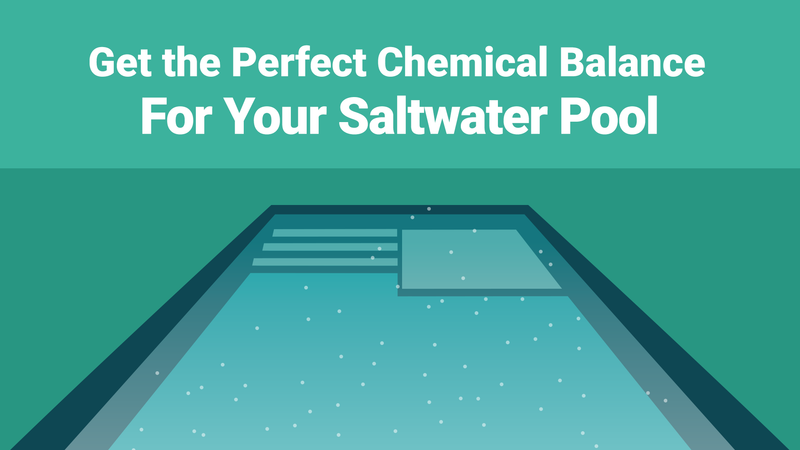Welcome to our comprehensive guide on how to balance a saltwater pool! Saltwater pools have gained popularity in recent years due to their lower maintenance requirements and gentle feel on the skin compared to traditional chlorine pools. However, it’s essential to ensure that your saltwater pool is properly balanced to maintain water clarity, prevent algae growth, and protect your pool equipment. In this article, we’ll explore the importance of pool water balance and provide you with step-by-step instructions on how to achieve and maintain the perfect balance in your saltwater pool.

Credit: www.amazon.com
The Importance of Balancing Your Saltwater Pool
Properly balancing the water in your saltwater pool is crucial for several reasons. Balanced pool water not only ensures a safe and comfortable swimming environment but also helps prevent damage to your pool equipment and surfaces. Here are some key reasons why water balance is essential:
- Prevents algae growth
- Protects pool equipment
- Ensures water clarity
- Maintains swimmer comfort
Key Factors to Consider
When it comes to balancing a saltwater pool, there are several key factors to consider:
- pH level
- Chlorine level
- Alkalinity
- Cyanuric acid (CYA)
- Calcium hardness
- Total dissolved solids (TDS)
Step-by-Step Guide to Balancing Your Saltwater Pool
Now, let’s dive into the step-by-step process of balancing your saltwater pool:
1. Test Your Water
Use a reliable pool water testing kit to check the levels of pH, chlorine, alkalinity, CYA, calcium hardness, and TDS in your pool water. Testing should be done regularly to ensure that your pool water remains balanced.
2. Adjust Ph Level
The ideal pH level for a saltwater pool is between 7.2 and 7.6. If the pH is too high, add pH decreaser. If it’s too low, add pH increaser.
3. Maintain Chlorine Level
Ensure that your saltwater pool has the right amount of chlorine to effectively sanitize the water. Follow manufacturer instructions to adjust the chlorine level as needed.
4. Adjust Alkalinity
Alkalinity helps stabilize the pH level in your pool. The recommended alkalinity level for a saltwater pool is between 80 and 120 ppm. Use an alkalinity increaser or decreaser to adjust the levels accordingly.
5. Monitor Cya Levels
Cyanuric acid (CYA) helps protect chlorine from UV degradation. The ideal CYA level for a saltwater pool is between 70 and 80 ppm. Add stabilizer if needed to maintain the correct CYA level.
6. Check Calcium Hardness
Calcium hardness refers to the amount of dissolved calcium in your pool water. The recommended calcium hardness level for a saltwater pool is between 200 and 400 ppm. Adjust the calcium hardness using a calcium increaser or decreaser.
7. Manage Total Dissolved Solids (tds)
Total dissolved solids (TDS) are the total amount of dissolved substances in your pool water. TDS levels should be monitored, and you may need to partially drain and refill your pool to maintain optimal TDS levels.
Maintaining Water Balance
Once you have balanced your saltwater pool, it’s essential to maintain water balance by regularly testing and adjusting the chemical levels. Here are some tips to help you keep your pool water balanced:
- Test your pool water at least once a week
- Keep your pool equipment clean and well-maintained
- Shock your pool regularly to remove contaminants
- Keep your pool covered when not in use to prevent debris buildup
- Monitor water temperature and adjust chemical levels accordingly

Credit: poolpartstogo.com
In Conclusion
Balancing your saltwater pool is essential for maintaining a clean, safe, and enjoyable swimming environment. By following the steps outlined in this guide and staying proactive in testing and adjusting your pool water, you can ensure that your saltwater pool remains in perfect balance all season long. Remember, a balanced pool is a happy pool!
Thank you for reading our guide on how to balance a saltwater pool. We hope you found this information helpful and that you’re now equipped with the knowledge to keep your saltwater pool in top condition. Happy swimming!




